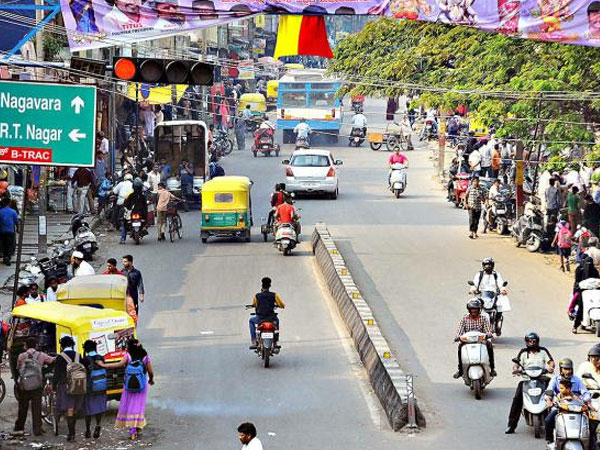How former addicts are fighting drug menace in Bengaluru
If you're visiting India's tech hub, Bengaluru, for the first time, you probably won't keep a date with Tannery Road in spite of its British-era legacy of hosting the famous tanneries.
The 4 km-long stretch, mostly comprising narrow lanes filled with potholes and garbage dumps, is where dimly lit shops of carpenters, meat sellers and food stalls struggle to attract the attention of customers.

Bengaluru's mini-Mumbai
As the locals proudly greet visitors with a "welcome to mini-Mumbai", poverty, illiteracy and large-scale unemployment are fait accompli of the residents which successive governments have failed to acknowledge. Perhaps the comparison with Mumbai is because of the fact that Tannery Road, just like Maximum City, is a spot that is full of dark truths yet bustling with life.
Take a round of the locality-- characters as diverse as a burqa-clad woman selling pan, a bunch of giggling schoolgirls walking back home, disillusioned carpenters sipping tea in their warehouses and local teenagers deeply engrossed in a discussion about the current political scenario of the country-will provide any filmmaker or photographer enough images for their next prize-winning project on Incredible India.
The scourge of drug abuse
But there are some pictures which perhaps no one wants to see or acknowledge in this predominately Muslim-dominated area---- widespread drug addiction among its residents.
"Yahan har ghar, har gali mein drug users hain (Every household, each lane have drug users)," says Saif Sadiq, a reformed drug addict-turned-outreach worker who is a part of targeted intervention programmes started by the National AIDS Control Organization(NACO) in 2006 across the country.
In Karnataka, the NACO runs four targeted intervention programmes for injecting drug users (IDUs), in collaboration with the Karnataka State AIDS Prevention Society (KSAPS) and NGOs and CBOs (community based organisations), as a part of its HIV prevention strategy.
"Drug dens have mushroomed in unimaginable places--from graveyards to dilapidated school buildings...all places are infested by such people," Saif adds.
Frightening figures
Saif's claims may sound a bit of an exaggeration but statistics also say the same. Bengaluru-based NGO Sangama and KSAPS have identified around 534 drug users in Tannery Road and its neighbouring locality DJ Halli alone. The official figure stands at a total of 1,500 IDUs across the state.
"The number, 534 IDUs, covers only those people who have come out in the open to talk about their addiction issue and are seeking rehabilitation measures. It is just the tip of an iceberg. The numbers are far more than what official records state. Drug users don't admit about their addiction so easily. It is a social stigma. Addiction to various substances is considered as a crime. In reality, it is a disease and the society should accept it to restrict its spread," says Baiju Satyan, Saif's fellow worker and a former IDU.

Foot soldiers fighting drug menace
The officials at Sangama say that it is because of people like Saif and Baiju they have managed to identify and reach several IDUs in Tannery Road.
"The
IDUs
operate
in
a
clandestine
manner.
It
is
a
big
network
and
they
maintain
high
level
of
secrecy.
A
drug
user
generally
opens
up
about
his/her
addiction
only
in
front
of
another
addict.
That
is
why
we
engage
reformed
drug
addicts
in
our
work
to
make
the
whole
task
much
easier,"
says
Nagesh,
who
works
for
Sangama.
Ask
Saif
and
Baiju
about
their
daily
routine,
they
reply
with
a
smile,
"We
don't
think
of
it
as
a
job.
It
is
a
mission
for
us.
Sometimes
we
work
without
pay
for
months.
We
get
just
Rs
8,500
per
month
for
a
job
that
involves
a
lot
of
risk.
But
we
love
it.
Behind the half-hearted smile, there is a sense of guilt that Saif admits.
"We have lost many friends to drugs in the recent years. However, nothing feels better than going out there and counselling people, distributing needles/syringes to IDUs. We also help them get condoms, basic STI (sexually transmitted infections) services and advocacy, and Opioid Substitution Therapy (OST), which enables IDUs to seek alternatives for reducing the harms related to drug use."
OneIndia News


 Click it and Unblock the Notifications
Click it and Unblock the Notifications


































